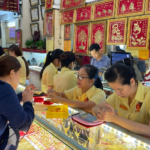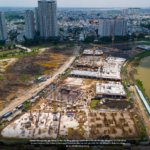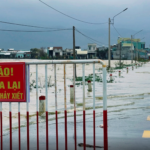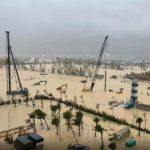- Resilient Spirit Embodied: Examining the Progress and Challenges within current ghana news – A West African Powerhouse.
- Economic Resilience and Growth Drivers
- Political Landscape and Governance
- Addressing Corruption and Promoting Accountability
- Social Development and Human Capital
- Infrastructure Development and Connectivity
- Energy Sector Reforms and Sustainability
- Regional Integration and International Relations
Resilient Spirit Embodied: Examining the Progress and Challenges within current ghana news – A West African Powerhouse.
Ghana, a West African nation steeped in history and brimming with potential, continues to garner international attention. Recent developments across various sectors paint a complex picture – one of significant progress alongside persistent challenges. Understanding the multifaceted nature of current ghana news requires a deeper look at economic indicators, political landscapes, and societal shifts. This article aims to provide a comprehensive overview of these dynamics, exploring the opportunities and obstacles that lie ahead for this rising African powerhouse.
The nation’s commitment to democratic principles, coupled with its abundant natural resources, positions it as a key player in the regional and global arena. From advancements in agricultural technology to burgeoning tourism and increasing foreign investment, Ghana is actively charting a course toward sustainable development. However, issues surrounding infrastructure deficits, income inequality, and governance reforms demand continued attention and strategic interventions.
Economic Resilience and Growth Drivers
Ghana’s economy has demonstrated resilience in recent years, despite global economic headwinds. The country’s strong performance is driven by exports of key commodities like cocoa, gold, and increasingly, oil and gas. Prudent fiscal policies and a focus on diversifying the economic base are also contributing factors. However, reliance on commodity prices remains a vulnerability, highlighting the need for further structural reforms. A collaborative effort between private investors and government initiatives is vital for long-term success.
Furthermore, the growth of the services sector, particularly in areas like telecommunications and financial technology (fintech), is creating new opportunities for employment and economic advancement. The government’s “Ghana Beyond Aid” agenda aims to reduce dependence on foreign aid and foster self-reliance through strategic investments in domestic industries. This requires a concerted effort to improve the business climate, lower regulatory burdens, and promote innovation.
| Key Economic Indicator | 2022 (Estimate) | 2023 (Projection) |
|---|---|---|
| GDP Growth Rate | 3.5% | 5.2% |
| Inflation Rate | 31.7% | 25.0% |
| Unemployment Rate | 4.2% | 4.0% |
| Foreign Direct Investment (FDI) | $2.4 Billion | $2.8 Billion |
Political Landscape and Governance
Ghana’s democratic institutions have solidified over the past three decades, establishing it as a beacon of stability in a region often marked by political turmoil. Regular and peaceful elections, a vibrant civil society, and a relatively free press contribute to a generally open and accountable political environment. However, challenges remain, including concerns about corruption, political polarization, and the need for greater inclusivity in governance. Effective and transparent institutions are crucial for maintaining public trust and fostering sustainable development.
Ongoing reforms aimed at strengthening the rule of law, improving public sector efficiency, and combating corruption are essential for realizing Ghana’s full potential. Strengthening the independence of the judiciary, promoting media freedom, and empowering civil society organizations are key components of this process. International partnerships and technical assistance play a supporting role, but ultimately, the onus lies on Ghana’s leaders and citizens to build a more just and equitable society.
Addressing Corruption and Promoting Accountability
Corruption remains a significant impediment to Ghana’s progress. While anti-corruption agencies have been established, challenges persist in effectively investigating and prosecuting cases of corruption, particularly those involving high-ranking officials. Strengthening the capacity of these agencies, enhancing transparency in public procurement processes, and promoting a culture of accountability are critical steps. Furthermore, empowering citizens to demand transparency and hold their leaders accountable is paramount.
Recent initiatives, such as the implementation of new asset declaration regimes and the promotion of whistleblowing mechanisms, are encouraging steps. However, sustained commitment and political will are required to translate these efforts into tangible results. Building stronger partnerships with civil society organizations and leveraging technology to enhance transparency are also essential components of a comprehensive anti-corruption strategy. Ultimately, a society that values integrity and accountability is vital for attracting investment, fostering economic growth, and improving the lives of its citizens.
Social Development and Human Capital
Significant strides have been made in improving social development indicators in Ghana, particularly in education and healthcare. Access to primary education has increased substantially, and efforts are underway to enhance the quality of secondary and tertiary education. However, inequalities in access to quality education persist, particularly between rural and urban areas, and between different socio-economic groups. Investing in teacher training, improving infrastructure, and providing scholarships to disadvantaged students are critical priorities.
Similarly, advancements have been made in healthcare, with improvements in maternal and child health, and efforts to combat infectious diseases. However, challenges remain in ensuring access to affordable and quality healthcare for all Ghanaians, particularly in remote areas. Expanding health insurance coverage, strengthening the healthcare workforce, and investing in modern medical facilities are essential steps. A healthy and well-educated population is the cornerstone of sustainable development and economic prosperity.
- Improving access to quality education for all children.
- Strengthening the healthcare system and expanding access to affordable healthcare.
- Promoting gender equality and empowering women and girls.
- Addressing issues of poverty and inequality.
- Investing in infrastructure development.
Infrastructure Development and Connectivity
Investing in robust infrastructure is crucial for unlocking Ghana’s economic potential. Infrastructure deficits in areas like transportation, energy, and water and sanitation pose significant constraints to economic growth and social development. The government has embarked on ambitious infrastructure projects, including the construction of new roads, railways, and power plants. However, funding constraints and project delays remain major challenges.
Public-private partnerships (PPPs) are increasingly being utilized to attract private sector investment in infrastructure projects. However, ensuring transparency and accountability in PPP arrangements is essential. Furthermore, investing in digital infrastructure, such as broadband internet access, is critical for connecting Ghanaians to the global economy and fostering innovation. Improving regional connectivity is also essential for facilitating trade and integration within the West African subregion.
Energy Sector Reforms and Sustainability
The energy sector in Ghana faces significant challenges, including aging infrastructure, transmission losses, and a reliance on fossil fuels. Diversifying the energy mix to include renewable energy sources, such as solar, wind, and hydro, is essential for achieving energy security and reducing carbon emissions. The government has set ambitious targets for increasing the share of renewable energy in the national energy mix. However, realizing these targets requires significant investment in renewable energy infrastructure and supportive policy frameworks.
Furthermore, improving energy efficiency, reducing electricity theft, and strengthening the regulatory framework are crucial steps. Investing in smart grid technologies and promoting energy conservation measures can also contribute to a more sustainable energy future. A stable and affordable energy supply is a prerequisite for attracting investment, driving economic growth, and improving the quality of life for all Ghanaians. Exploring the potential of domestic natural gas resources is also vital.
| Sector | Key Challenges | Ongoing Initiatives |
|---|---|---|
| Transportation | Poor road network, limited railway infrastructure | Construction of new roads and railways, PPPs |
| Energy | Aging infrastructure, reliance on fossil fuels | Investment in renewable energy, energy efficiency measures |
| Water & Sanitation | Limited access to safe water and sanitation | Construction of new water treatment plants, sanitation facilities |
| Digital Infrastructure | Limited broadband access, digital divide | Expanding broadband infrastructure, promoting digital literacy |
Regional Integration and International Relations
Ghana plays a pivotal role in regional integration efforts within the West African subregion. As a founding member of the Economic Community of West African States (ECOWAS), Ghana actively promotes trade, economic cooperation, and political stability among member states. The African Continental Free Trade Area (AfCFTA), headquartered in Accra, presents a significant opportunity for boosting intra-African trade and driving economic growth. However, realizing the full potential of AfCFTA requires addressing a number of challenges, including trade facilitation issues, customs barriers, and infrastructure deficits.
Ghana’s strong diplomatic relations with key international partners, including the United States, the European Union, and the United Kingdom, are essential for attracting investment, promoting trade, and fostering economic development. The country’s commitment to democratic governance, the rule of law, and human rights enhances its credibility and strengthens its partnerships with the international community. Continuing to promote peace, security, and stability within the subregion is a key foreign policy priority.
- Strengthening regional integration through ECOWAS and AfCFTA.
- Promoting trade and economic cooperation with international partners.
- Advancing peace, security, and stability in the West African subregion.
- Championing good governance, the rule of law, and human rights.
- Actively participating in multilateral forums to address global challenges.
The journey of Ghana is one marked by resilience, innovation, and a steadfast commitment to progress. While numerous obstacles remain, the potential for sustained growth and development is undeniable. Continued investment in human capital, infrastructure, and good governance, alongside a commitment to regional integration and international cooperation, will be critical for unlocking Ghana’s full potential and securing a brighter future for all its citizens.














